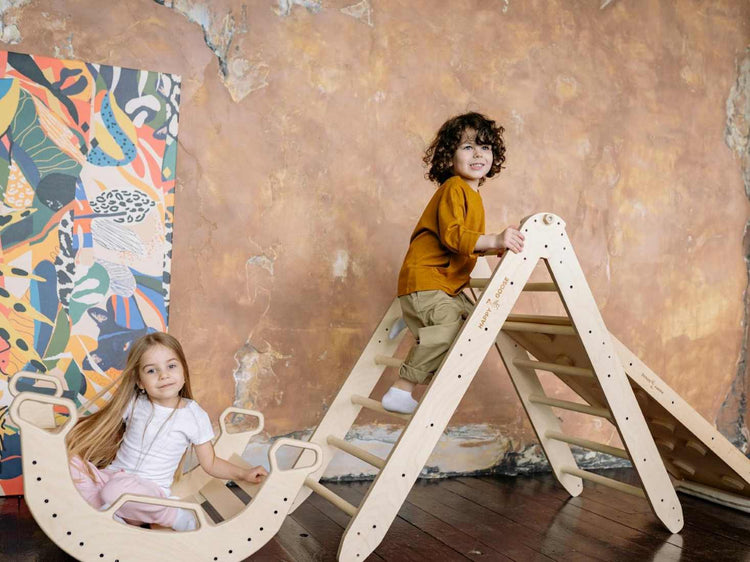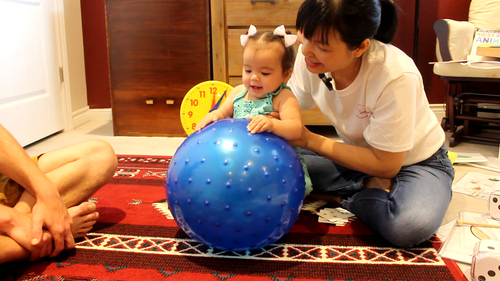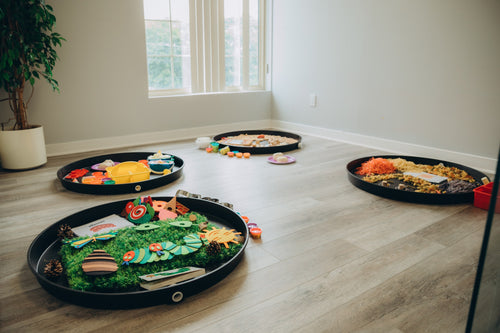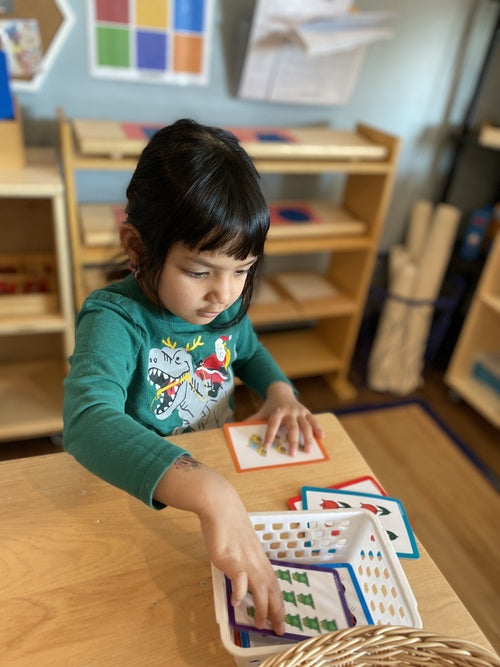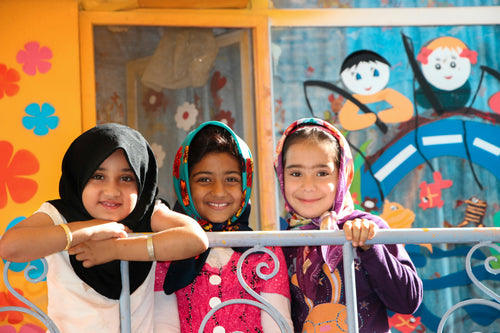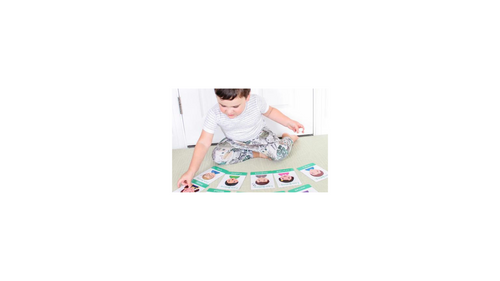After-school activities play a crucial role in a child’s development. They offer more than just a way to keep children busy; they provide opportunities for skill development, social interaction, and learning in a fun and relaxed environment. However, with so many options available, choosing the right after school activities for young children can feel overwhelming. How do you know which activity is best suited to your child's interests, personality, and developmental stage? In this article, we’ll guide you through the process of selecting after school activities that will enrich your child’s life and complement their overall growth.
1. Understand Your Child's Interests and Strengths
The first step in choosing after school activities is to understand your child’s interests and strengths. Each child is unique, and their preferences will vary. Some kids are naturally inclined toward physical activities, while others might show an interest in creative arts, music, or academic enrichment.
Ask your child about what they enjoy. Do they like painting, building with blocks, or playing soccer? By tuning into their passions, you can select activities that they’ll naturally be drawn to, ensuring they stay engaged and motivated. You can also observe how they spend their free time. For instance, a child who spends hours tinkering with puzzles or building structures might enjoy activities related to engineering or problem-solving.
2. Consider Age-Appropriate Activities
Age is a key factor when choosing after school activities. Young children, particularly those under six years old, require activities that promote basic developmental skills like motor coordination, language, and socialization. For preschoolers and kindergarteners, sensory play, creative arts, and outdoor activities are excellent choices, as they help build foundational skills while keeping things fun and interactive.
For children in elementary school, you can begin introducing more structured activities such as sports, music lessons, or foreign language classes. These activities can help them build discipline, teamwork, and cognitive abilities while still providing a space for fun and creativity.
Discover our French class for children here.
3. Look for a Balance Between Fun and Learning
When selecting after school activities, look for those that strike a balance between fun and learning. While it’s important for children to enjoy what they’re doing, the best activities also help develop important skills. For instance, art classes foster creativity and fine motor skills, while sports promote physical health, teamwork, and discipline. Activities like chess or science clubs can enhance critical thinking and problem-solving skills.
It’s equally important to avoid overwhelming your child with too much structure. After a long day at school, children need downtime and opportunities to engage in play. Look for after school activities that offer flexibility and allow for free expression. Structured programs are beneficial, but young children thrive when there’s room for exploration and creativity.
4. Evaluate the Time Commitment and Your Schedule
Another factor to consider is the time commitment required for different after school activities. Some activities, like team sports or performing arts, might require multiple days of practice and participation in competitions or performances. Others, like art or music lessons, may only require a once-a-week commitment. Make sure the activity fits into your family’s schedule without overwhelming your child or creating unnecessary stress.
It’s also essential to balance after school activities with your child’s need for relaxation and family time. Overscheduling can lead to burnout and make the child feel overwhelmed. A couple of well-chosen activities that complement their interests and abilities can have a more positive impact than an overloaded schedule.
5. Evaluate the Benefits of Social Interaction
After school activities can be an excellent way for young children to build friendships and improve social skills. If your child is shy or struggles with socializing in large groups, choosing an activity that promotes collaboration and interaction in a smaller, more controlled setting might be ideal. Programs like group art classes, team sports, or drama clubs provide opportunities for children to learn how to work with others, communicate effectively, and develop a sense of belonging.
For children who already have a strong social network, activities that encourage independent learning and development, such as individual sports (swimming, martial arts) or private music lessons, might be a better fit. Balancing both individual and group activities can help your child grow in different social and emotional aspects.
6. Assess the Skill Development Opportunities
After school activities can significantly enhance a child’s skill development. Many activities help children build confidence, resilience, and self-discipline. For instance, joining a dance class can improve motor skills, coordination, and self-expression, while participation in a science club fosters curiosity and critical thinking.
Look for activities that offer a mix of physical, emotional, and intellectual development. Sports can build physical endurance and teamwork skills, while academic clubs can boost cognitive growth. Creative arts can enhance emotional intelligence and problem-solving skills. When evaluating after school activities, think about which aspects of your child’s development you’d like to support.
7. Think About Future Interests and Passions
Although your child is still young, the after school activities they participate in now can help shape their future interests and passions. If your child shows a deep interest in a particular field, consider activities that could lead to long-term engagement. For instance, a love for music might start with beginner piano lessons and develop into a lifelong passion. Similarly, an interest in building and construction could lead to future involvement in engineering or robotics clubs.
While it’s essential not to push your child too hard in one direction, exposing them to a wide range of activities can help them discover their passions and strengths.
Discover 10 Fun Memory Games to Boost Your Child's Brain here.
8. Evaluate the Instructors and Programs
The quality of the after school program and its instructors is a critical factor to consider. Research the reputation of the activity’s organizers, including their experience working with young children. Are the instructors trained to support and encourage children in a nurturing way? Do they foster a positive and inclusive environment where children can thrive?
Look for programs that offer a low child-to-instructor ratio, ensuring each child gets enough attention. The best programs also provide regular feedback to parents, allowing you to monitor your child’s progress and make informed decisions about whether the activity is meeting your expectations.
9. Consider the Cost
While some after school activities can be costly, others may be more affordable or even free. It’s important to evaluate the cost of the activity and ensure it aligns with your budget. Consider all potential expenses, including equipment, uniforms, or extra fees for competitions or performances.
That being said, higher cost does not always equal higher quality. Many community centers, schools, and local organizations offer excellent programs at a fraction of the price of private lessons or clubs. Look for options that fit your budget while still providing high-quality experiences for your child.
10. Promoting a Growth Mindset
Finally, choose activities that foster a growth mindset in your child. Encourage them to try new things and see challenges as opportunities to learn. After school activities can be a great way to teach resilience and perseverance. Whether your child struggles at first with learning an instrument or mastering a new sport, help them understand that improvement comes with practice and patience.
Get more useful parenting tips for early childhood education here.
After School Activities at Smartizen
At Smartizen, we understand how important it is to find the right after school activities for your child’s growth and development. That’s why we offer a wide range of programs tailored to your child’s unique needs and interests. From sensory play to language learning (Mandarin, French, and Spanish), Smartizen provides fun and educational after school activities designed to enhance your child’s cognitive, social, and emotional development. Our expert instructors, guided by the Glen Domann and Montessori methods, ensure your child receives personalized attention in a nurturing environment.
Join us at Smartizen and discover how our after school programs can help your child thrive! Whether you’re looking for language classes, creative arts, or sensory play, Smartizen is the perfect place for your child to explore, learn, and grow. Book a trial class with us here.

